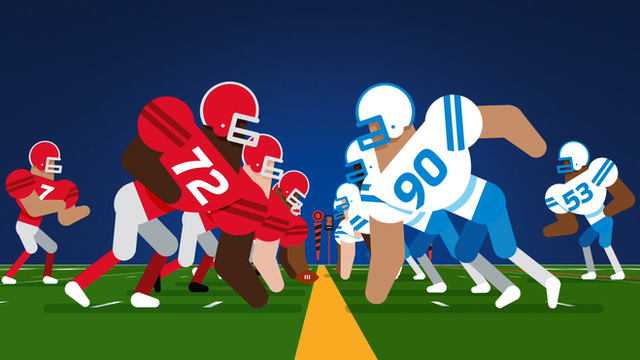NFL: Jacksonville Jaguars' Shahid Khan not sold on London move
- Published
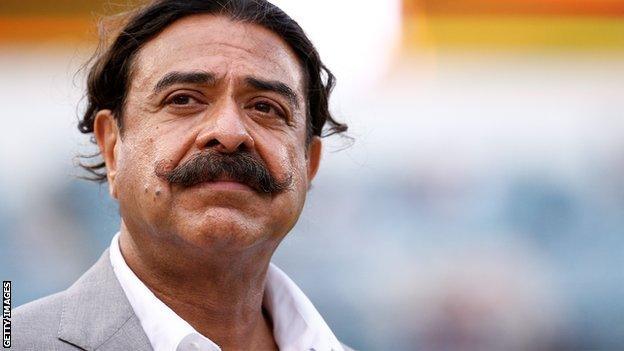
Shahid Khan also owns Championship side Fulham and calls London "the centre of the universe"
NFL International Series on the BBC |
|---|
25 October: Jacksonville Jaguars v Buffalo Bills - live on BBC Two from 13:00 GMT |
1 November: Detroit Lions v Kansas City Chiefs - live on the Red Button and BBC Sport website, with highlights on BBC Two |
Shahid Khan grew up studying maps of London's transport system, has family there, owns one of its football teams and considers it to be "the centre of the universe".
So it is hardly surprising that people continue to wonder why this personification of the American dream does not just move his other football team to London too, particularly as that team has already got a change of clothes in Wembley's wardrobe and toothbrushes in the bathroom.
The Pakistan-born billionaire, who became a US citizen in 1991, is visiting England's capital again this week, catching up with Fulham's faltering efforts to return to the Premier League. He will also be watching the Jacksonville Jaguars' latest attempt to win an NFL game at their "home away from home" when they meet the Buffalo Bills on Sunday.
"I'm from the colonies, so I remember when the sun never set on the British Empire," said the 65-year-old auto-parts tycoon, when I asked him about his links with the city.
"I have a huge affinity with London and I have a lot of relatives here, now and before I was born. I pretty much look at London as the centre of the universe."
Does this sound like a man who would take much persuading to own two of London's "football" teams?
The north Florida-based team, bought by Khan in 2011, are almost three-quarters of the way through an initial four-year deal to play one home game a season at Wembley until 2016.
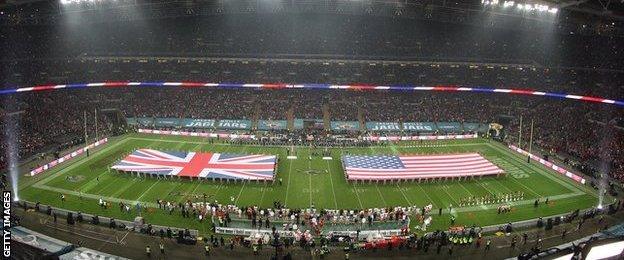
Wembley has staged 13 NFL games since 2007, all but one selling out
That agreement was stretched until 2020 on Thursday as part of a wider five-year deal to play two NFL games a season at English football's national stadium, with an option to extend that to 2025.
Given the fact Khan has recently hinted to reporters in Jacksonville that he wants to play one home game a year in London until 2030, it is safe to say that he will be pushing for that option to be exercised.
If it is possible to have an anchor tenant in an agreement to rent temporary space at a different sport's national stadium, in a different country, the Jaguars are that tenant.
This is no small matter in a league that only guarantees its 32 franchises 10 home games a year, of which two are what we would call pre-season friendlies.
Can you imagine how Arsenal season-ticket holders would feel if shareholder Stan Kroenke told them he was taking two or three Premier League games a season to Missouri?
And that is before you consider what any Premier League club's local sponsors might have to say about potentially losing more than 10% of the value of their deals, or what the shift in time zones might do to broadcast rights, or that the Jaguars are the long-term anchor tenants in a publicly financed stadium in Jacksonville.
When it was suggested to the NFL's head of global expansion, Mark Waller, that US sports fans must be more understanding than British football fans, the British-born, Spurs-supporting executive quite rightly scoffed.
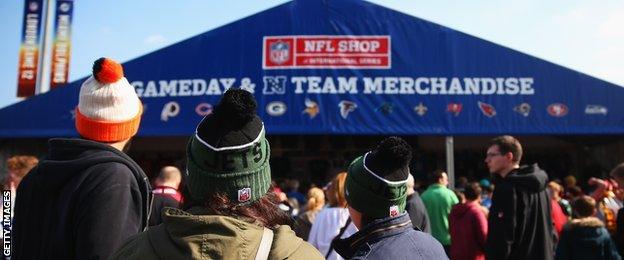
The British gridiron fan seems to have an insatiable appetite for souvenirs, with only Take That selling more merchandise at Wembley than the NFL
"Trust me, they get angry too," said Waller.
But the Jaguars are not a typical NFL team, just as Khan is not a typical NFL team owner and the NFL is no longer thinking like a typical US professional sports league.
Taking that last point first, it is perhaps worth explaining some of the background to what one journalist at Thursday's announcement described "as one of the most boring sagas in British sport", the NFL's coy game of footsie with British fans.
With annual revenues of about £8bn, the NFL has been the world's richest sports league for a long time, a status built on its dominance of the world's most valuable TV market.
If you want to sell anything in the States, from cars to carpet cleaner, you have to advertise during its games: last year, 45 of the top 50 most popular TV programmes in the US were NFL games.
The league's bosses have frequently made fools of those who have predicted that the NFL cannot get any bigger at home but most experts would suggest it is time for this apex predator to look for new hunting grounds. And that explains the advent of the "International Series".
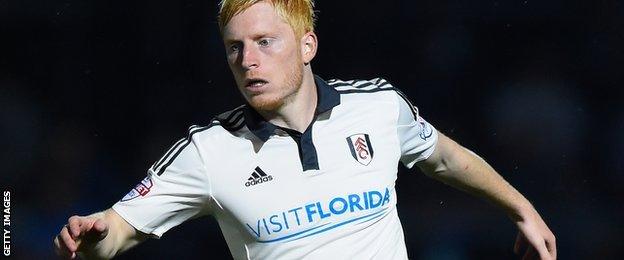
Khan's Fulham side now have shirts sponsored by tourist body Visit Florida, the home state of the Jaguars
Having tried to export the virtues of America's favourite sport with pre-season games and second-tier leagues, the NFL decided only the real deal would do, so Wembley was hired and we got to see a game a year from 2007 to 2012, two games in 2013 and then three games last year and this season.
Finding teams to cross the Atlantic has been done on a voluntary basis and has required some gentle persuasion and cold, hard compensation.
All but one of the International Series games has sold out (the only one that did not was in 2011 when a labour dispute delayed the announcement of the game, leaving little time to sell the 84,000 tickets…they got close, though). And every game has provided what one Wembley executive described to me as "epic spends" on food and merchandise.
But the NFL is still making a loss on these games as it reimburses any lost revenues at home, as well as covering the significant travel costs.
For the league, however, this is an investment and Waller was justifiably proud to say all 32 owners recently voted to continue the experiment until 2025 and to start looking for new territory to conquer, with Germany and Mexico next on the list.
London will remain the priority, though, as the extension to the Wembley deal follows a commitment to stage at least two games at Tottenham Hotspur's new White Hart Lane from 2018, providing it is finished.
As Waller explained, four games a year in London is half a season, and having two venues should make life easier for the NFL's schedule-makers.
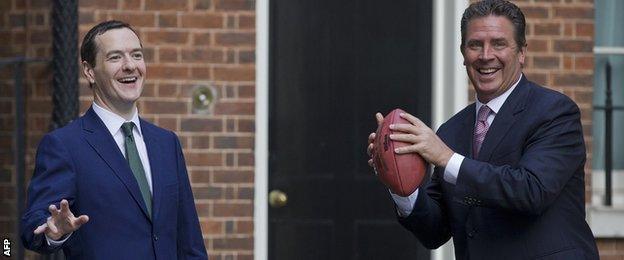
Chancellor of the Exchequer George Osborne, with Dolphins legend Dan Marino, has recently pledged his support to the NFL's London expansion plan
Currently, any team that plays here gets the next weekend off, and 'bye weeks' are only possible during the middle eight weeks of the regular season because of the time it takes to ship equipment here (and get it back) and concerns about compromising the competition.
That window of opportunity also happens to coincide with two banks of international football, and even the Jaguars still get trumped by the Three Lions.
A second stadium, however, means London and the NFL's relationship can take the next step towards full cohabitation: persuading a team (and we are looking at you, Jacksonville) to play back-to-back weekends here, once as a home team, once "on the road".
From there the next stage will be to do away with the automatic bye, then it will be to persuade those teams who have not yet volunteered for missionary duty, then to try three games abroad in a season, a play-off game, the Super Bowl…sorry, I am getting carried away again.
Not that I am the only one. British Chancellor George Osborne and London Mayor Boris Johnson are just two prominent domestic cheerleaders for the idea of a full-time London franchise. They have seen the numbers.
When asked at what point the NFL will decide it has sold out Wembley enough times, seen its international TV revenues rise sufficiently and flogged enough replica jerseys abroad to be confident it can sustain a permanent overseas presence, Waller did his best Walter Payton impression.
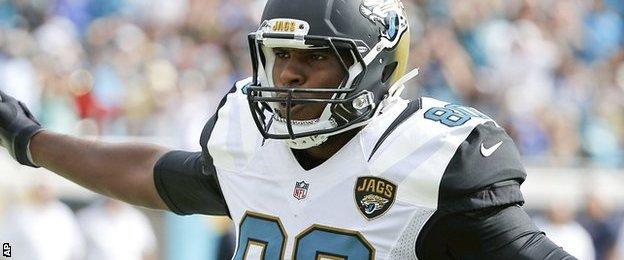
The Jacksonville Jaguars' London appearances have boosted their profile and income
"As you know that's a decision which rests with the 32 owners and it's definitely something that takes a lot of consideration," he said, swerving skilfully.
"But our commitment has always been to make sure we have a fan base here to support a team so when the ownership is ready to take that decision the fans and the stadiums will be ready.
"We're in good shape, though. The fact that we can sell out three games in the middle of the Rugby World Cup and with a fascinating and intense Premier League season going on is a testament to that."
He also reminded me of the saga that is arguably the USA's most boring sports story: which franchise is going to move into the vacant Los Angeles market.
Once upon a time, as team president Mark Lamping pointed out, the Jaguars would have topped an internet search on the LA question.
Not anymore.
Both he and Khan believe this is because of the "stabilising" effect that playing games in London has had on the Jaguars in Jacksonville.
Their rationale is that they bought a struggling franchise, on and off the field, with a relatively small local fan base.
But becoming the NFL's "international team" has increased revenues (the London game is worth 15% of their annual ticket income) and boosted the team's profile. Their website,, external for example, has gone from being the league's least visited to one in the top 10 for hits, with most of that new traffic coming from abroad.
All true, no doubt, but it is also true that when you do an internet search for the teams most likely to move to London, the Jaguars come top: a point Lamping acknowledged with a shrug and a smile.
Which brings us back to where we started: look what playing one game a year in London has done for a team like the Jaguars - imagine what eight games would do.
"I think imagination is a crazy thing and that's what makes the world go around," said Khan, who is far too smart to make a decision of this magnitude on such flimsy evidence.
"But it's been great thing for us to play a game here and to continue doing so for the near future."
So Jaguars fans in Jacksonville can rest easy for the time being, and British NFL fans will just have to accept that this is going to be a long-distance relationship for the foreseeable future.
- Attribution
- Published25 October 2015
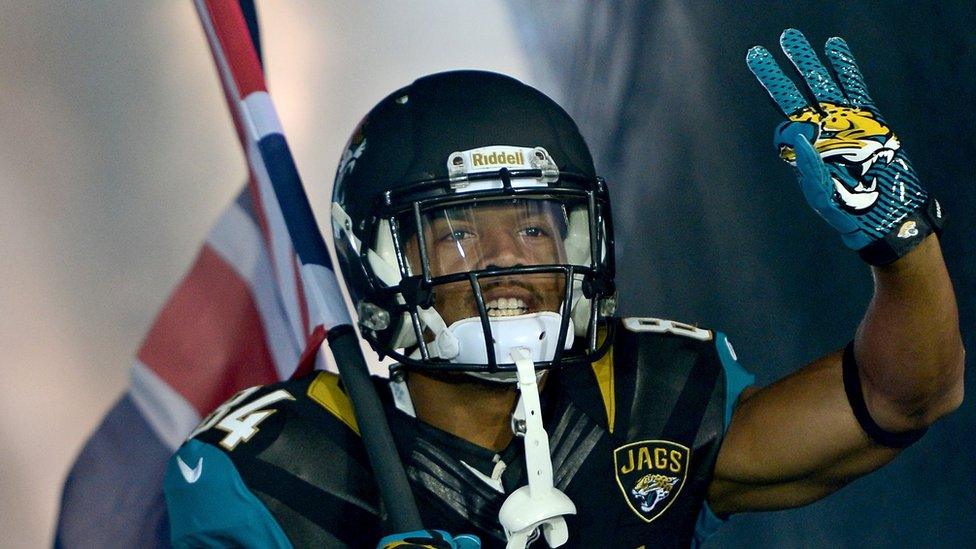
- Published19 October 2015
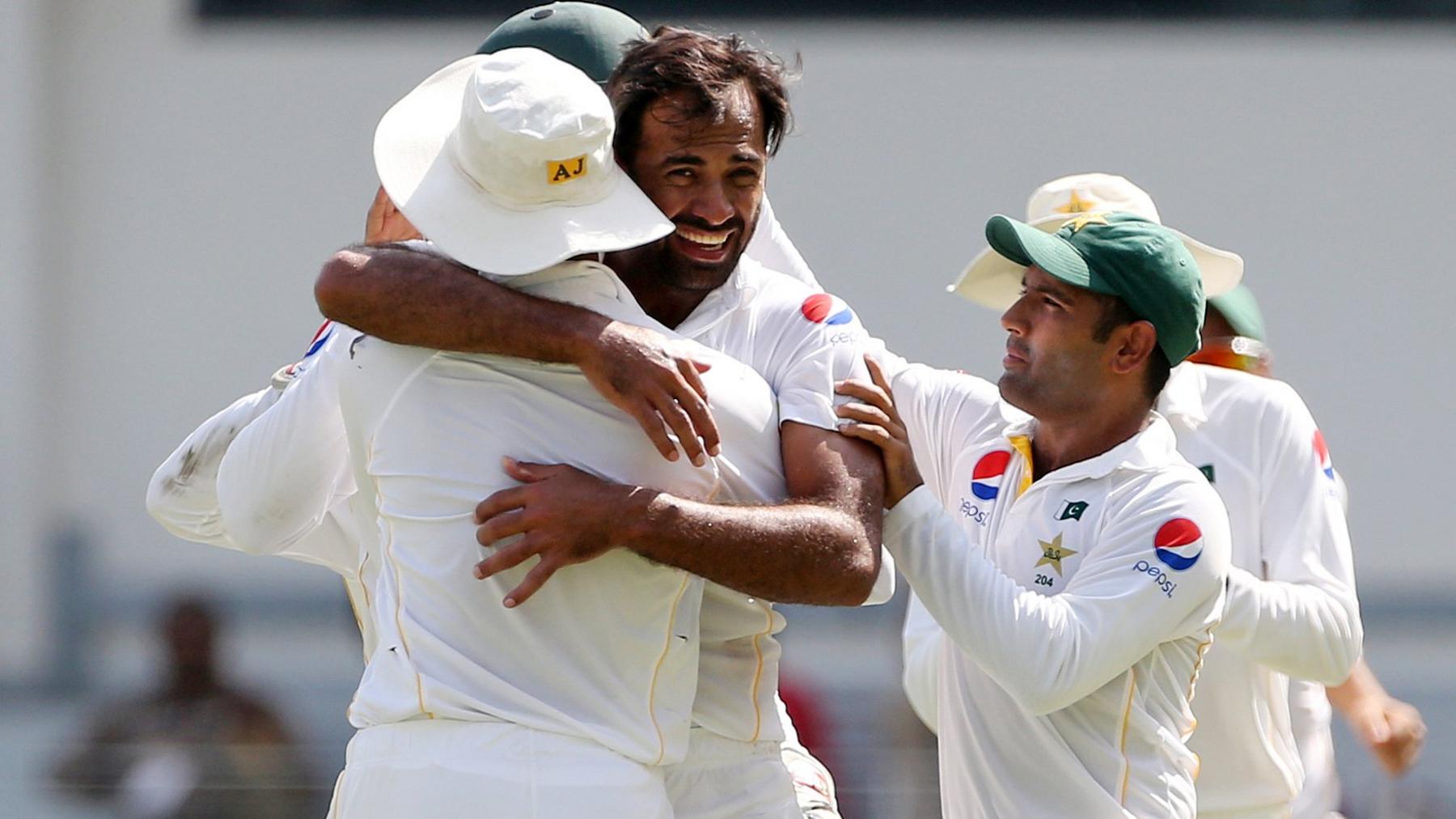
- Published23 October 2015
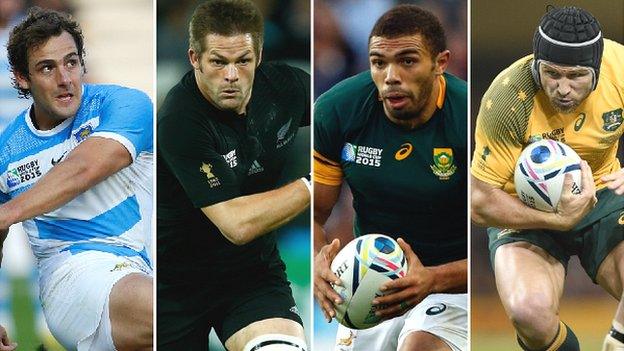
- Published22 October 2015
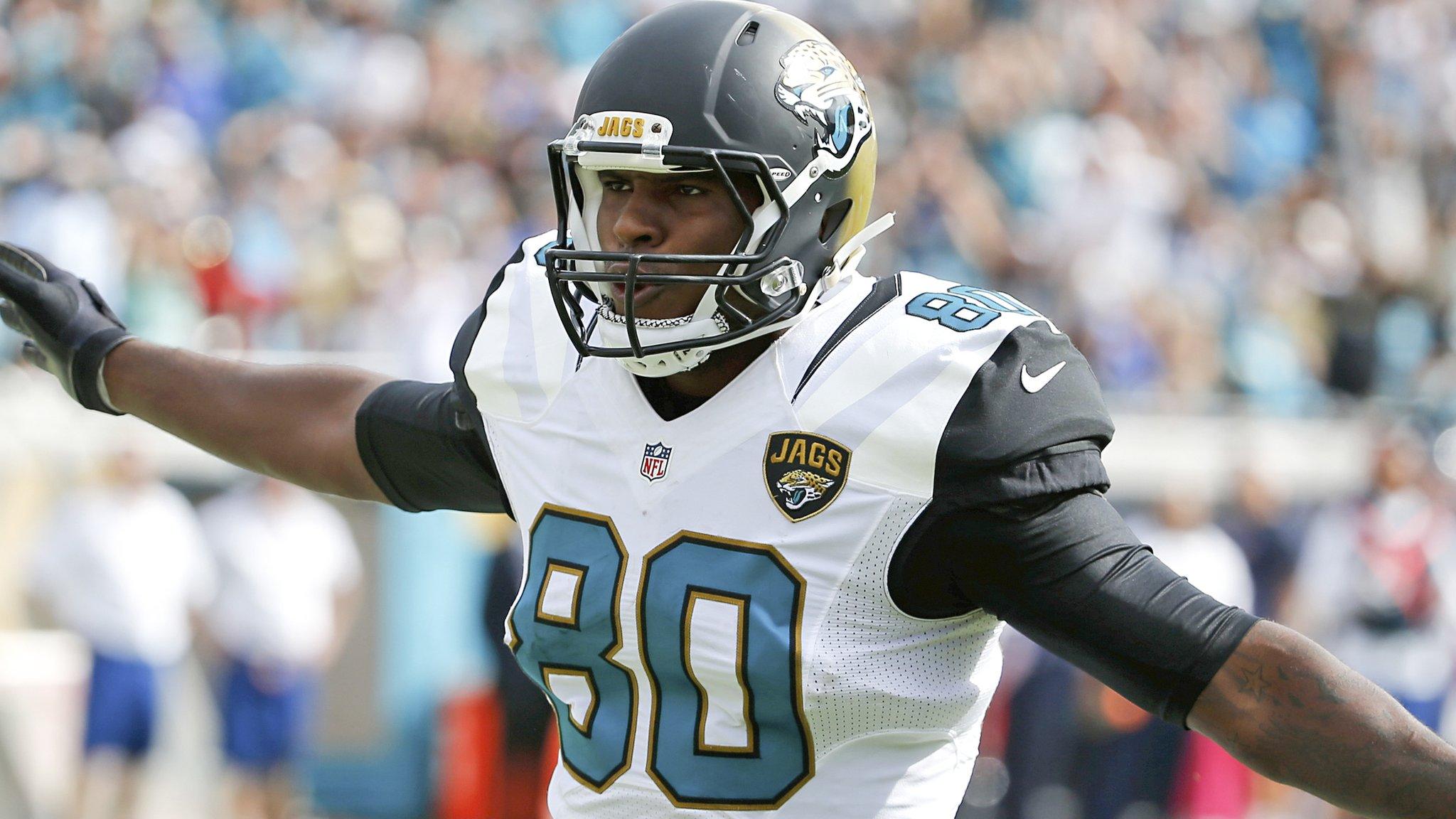
- Published3 April 2019
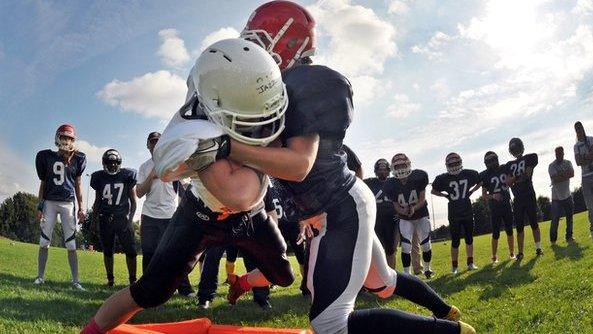
- Published12 November 2015
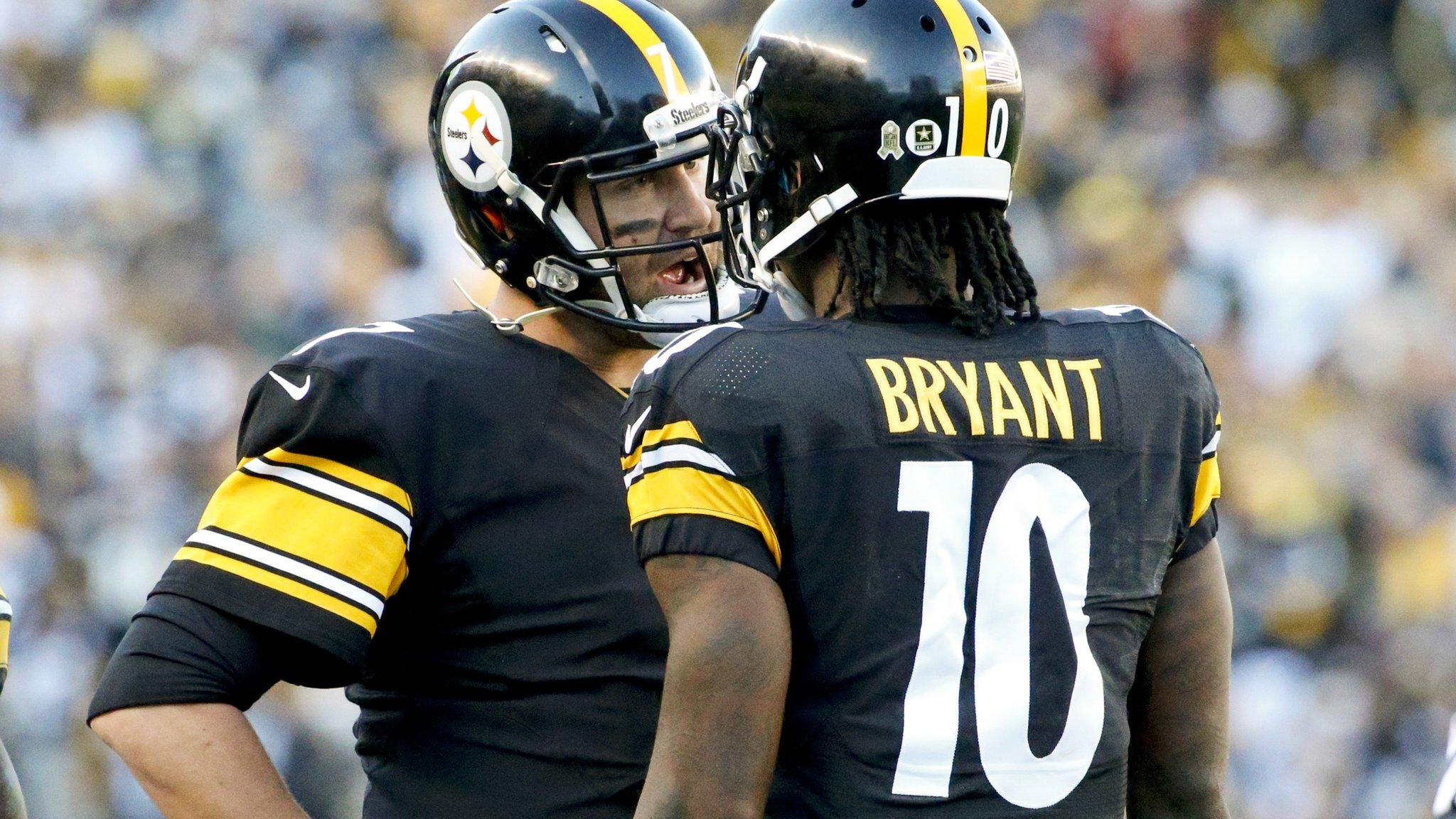
- Published2 October 2015
